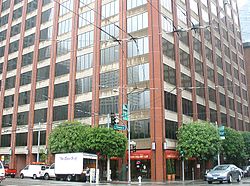By Aaron Miller-
Regulators from the State Bar of California have been urged to take the lead in the U.S in allowing non-lawyers to invest in and own law firms.
The bar’s board of trustees have authorised a task force to study and propose recommendations for reforms that balance the goals of public protection and increased access to justice.
At a meeting in Los Angeles last week, the bar agreed to set up a task force to investigate the issue, following a report it commissioned from Professor William Henderson. Highly accomplished Henderson holds the chair on the legal profession at Indiana University.
Henderson opined that “to foster innovation, the ideal would be to have lawyers and allied professionals working together as co-equals within the same legal service organisation” The brilliantly articulated report states that lawyers now need to work closely with professionals from other disciplines but are prevented from doing so by ethics rules.
‘To the extent these rules promote consumer protection, they do so only for the minority of citizens who can afford legal services,’ Prof Henderson, who is based at the Indiana University Maurer School of Law, stated.
Professor Henderson is convinced that the modification of ethics rules will assist collaboration across law and other professions. Henderson believes it will also drive down costs, improve access, increase predictability and transparency of legal service, aid the growth of new businesses, and elevate the reputation of the legal profession.
Professor Henderson also noted the appetite from investors to enter the legal market.The task force proposals are not expected until 2019 . They are expected to lead to a version of the alternative business structure regime in the U.k and Australia, which allows a system where non-lawyers are able to own law firms and legal businesses are able to take on external capital investment.
The notion of non-lawyer ownership has been considered at various levels in the U.S for several years, in particular by the nationwide American Bar Association (ABA). It has just never gathered enough support to get off the ground.
Professor Henderson’s Legal Market Landscape Report found that private investors were “increasingly pushing the boundaries” of the rules banning non-lawyer ownership by funding new technologies and service delivery models “designed to solve many of the legal market’s most vexing problems”.
Henderson said the legal services markets targeted at consumers and at businesses was evolving very differently, and argued that what tied them together was “the problem of lagging legal productivity”.
He explained: “As society become wealthier through better and cheaper good and services, human-intensive fields such as law, medical care, and higher education become relatively more expensive.
“In contrast to medical care and higher education, however, a growing proportion of US consumers are choosing to forgo legal services rather than pay a higher price.” This put the legal profession at an “inflection point” that required action by regulators, Professor Henderson said.
“Solving the problem of lagging legal productivity requires lawyers to closely collaborate with allied professionals from other disciplines, such as technology, process design, data analytics, accounting, marketing and finance.
“By modifying the ethics rules to facilitate this close collaboration, the legal profession will accelerate the development of one-to-many productized legal solutions that will drive down overall costs; improve access for the poor, working and middle class; improve the predictability and transparency of legal services; aid the growth of new businesses; and elevate the stature and reputation of the legal profession as one serving the broader needs of society.”
Professor Henderson said “some US jurisdiction needs to go first”, and that based on historical precedent, the most likely was California.“The law should not be regulated to protect the 10% of consumers who can afford legal services while ignoring the 90% who lack the ability to pay.
“This is too big a gap to fill through a renewed commitment to pro bono. This is a structural problem rooted in lagging legal productivity that requires changes in how the market is regulated.”
Traditionally, the bar association in US states undertakes both roles; professional rules are set at a state level, with the ABA producing model rules which are largely adopted by many states.
REASONABLE
The New York state bar and county lawyers associations, which have put forward the resolution, said this would “establish reasonable standards of product reliability and efficacy, provide consumers with information and recourse against abuse, ensure consumers are made aware of the risks of proceeding without attorneys, and inform consumers where affordable attorneys can be found, and protect confidential information”.

